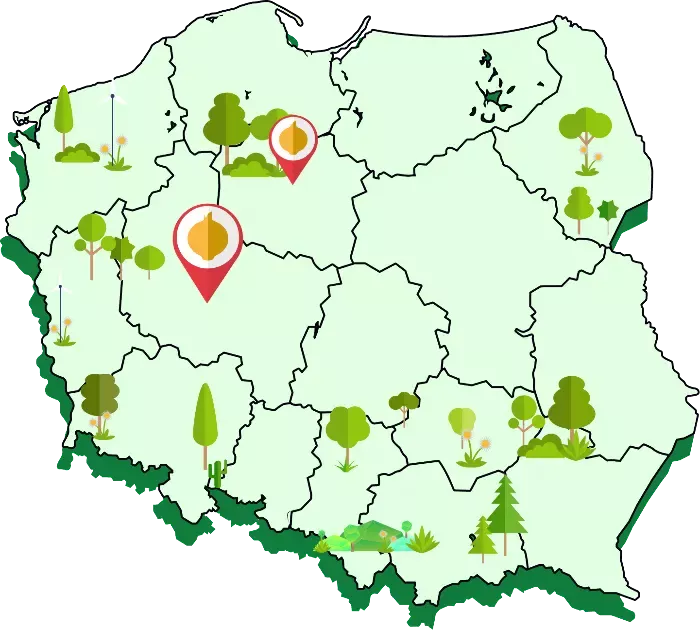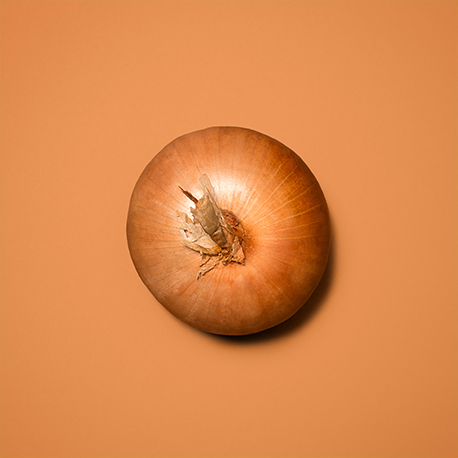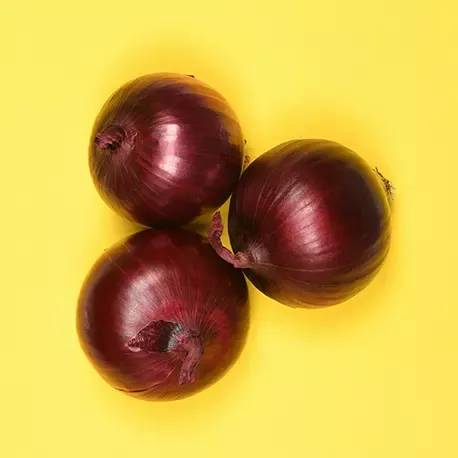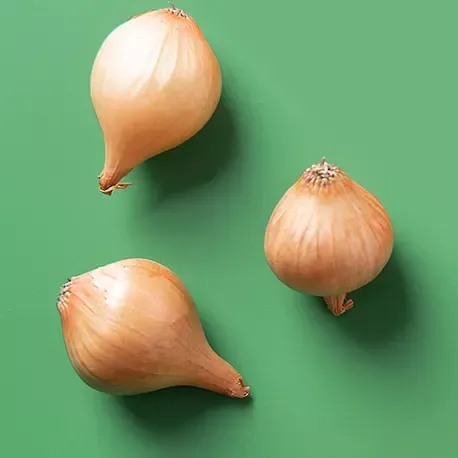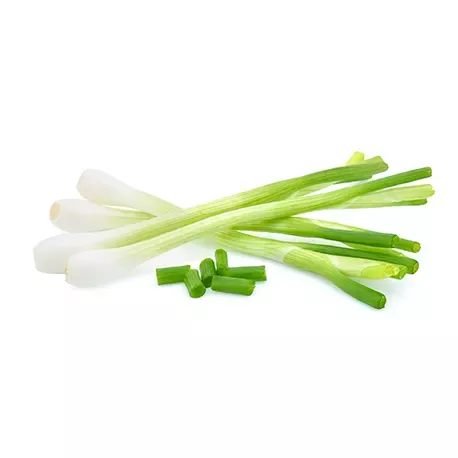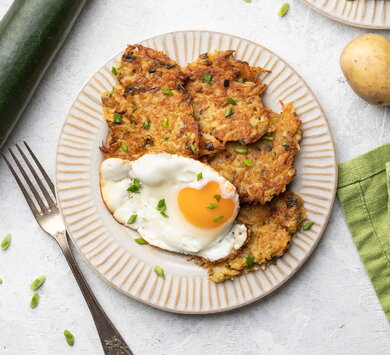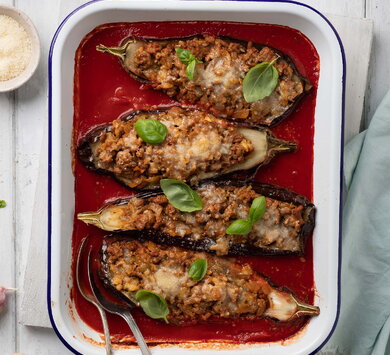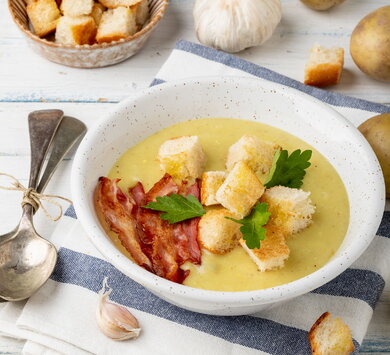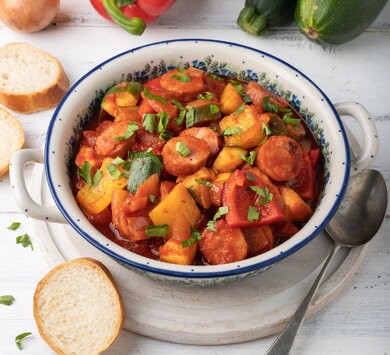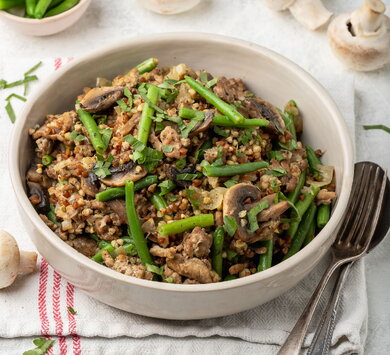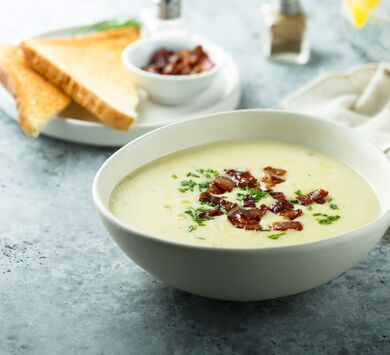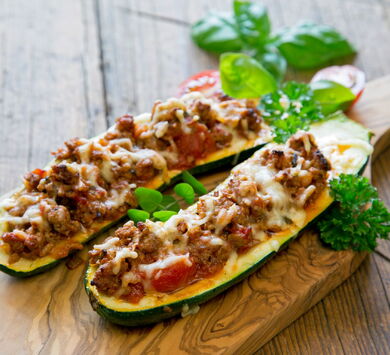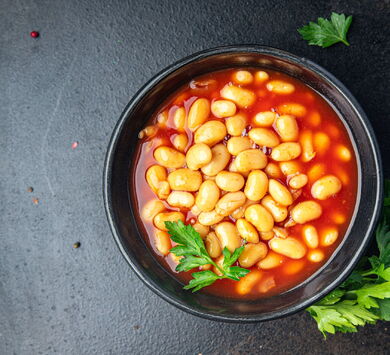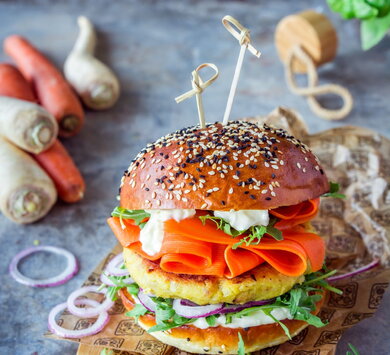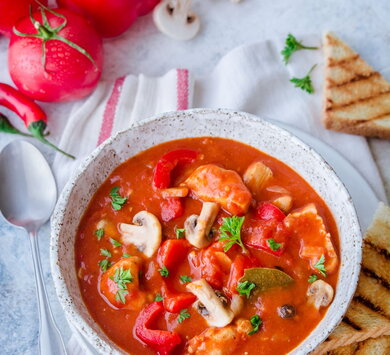Onion
It is a vegetable with a wide range of culinary uses and proven health benefits. It is grown and consumed all over the world. It stings the eyes just as much at any latitude! Why does this happen? This is due to sulphur compounds which are released as you cut into the damaged cells of the onion and turn into sulphuric acid. It dissolves in the tear fluid and irritates the conjunctivae, which react by overproduction of tears.

Onions are a good source of B group vitamins as well as vitamin C. The latter, derived from onions, used to protect sailors from scurvy! This aromatic vegetable provides not only minerals but also compounds with health-promoting properties, including those supporting immunity and accelerating wound healing.
Onions come in several hundred varieties. They vary in size, shape, flavour intensity or colour. It is used in every kitchen, for meat and vegetarian dishes, hot and cold, as an addition to pickles or preserves, and even as jam!
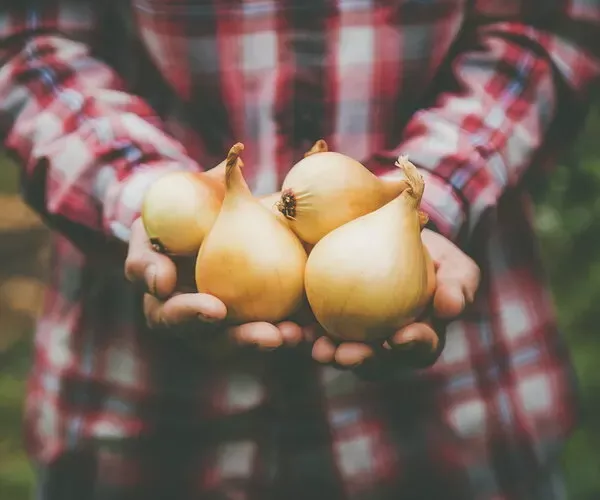
SPECIES
Yellow onion
These varieties are the most popular ones due to their versatility. Their scales are compact, outer scales are deep yellow in colour, while the inner scales are pale yellow or whitish. These varieties store well, which is an important performance characteristic.
Red onion
It differs little from yellow in nutrient content. It stands out with its intense red or sometimes purple scales. It is used in dishes with strong colours and it is caramelised well. Served raw, it enlivens the composition on your plate.
Garlic onion
A distinctive white variety with compact white scales and a very intense flavour, reminiscent of garlic. It is excellent for multi-vegetable dishes, but especially for meats and marinades.
Seven year onion
The onion itself is small, and is grown primarily for its chives.
NUTRITIONAL VALUE
Nutritional value per 100g of onion:
ENERGY VALUE
PROTEIN
FATS
CARBOHYDRATES
VITAMIN C
CALCIUM
Onion FOR YOUR HEALTH!
For beautiful skin and hair
The sulphur compounds in onions improve the condition of skin, nails and hair. Their structures are made up, among other things, of sulphur-containing amino acids. Onions provide building blocks, thus strengthening hair and nails and giving elasticity to the skin.
Accelerates wound healing and smooths scars
The effect is related to the content of both sulphur compounds and B group vitamins. The property of onions in accelerating skin regeneration is used by the pharmaceutical industry. Creams and ointments to lubricate surgical scars are made of this vegetable.
For a shapely figure
Onions are a low-calorie vegetable, provided of course that they are served fresh and not caramelised, fried or in onion rings in pastry. The fibre contained in them boosts the peristalsis and nourishes the intestinal microflora.
For insect bites
Many people use onion compresses after being stung by wasps, gnats or mosquitoes. This is the right thing to do, as the vegetable has antiseptic and anti-inflammatory properties. Several minutes with the compress will visibly support the regeneration of damaged tissues. Above all, it reduces the sensation of itching.
Diabetic-friendly
Onions have a low glycemic index. As a result, it can be eaten by people with diabetes without any problems. In addition, it has a proven blood glucose-lowering effect, which is beneficial for anyone at risk of developing this dangerous disease.
PRODUCTION MAP
Poland is the leading producer of onion in Europe. Cultivation of onion in Poland accounts for more than 13.5 percent of the total area of this vegetable cultivation in the EU and around 8.3 percent of the harvest in the entire EU. The largest number of onions is grown in Wielkopolskie and Kujawsko-Pomorskie voivodships.
